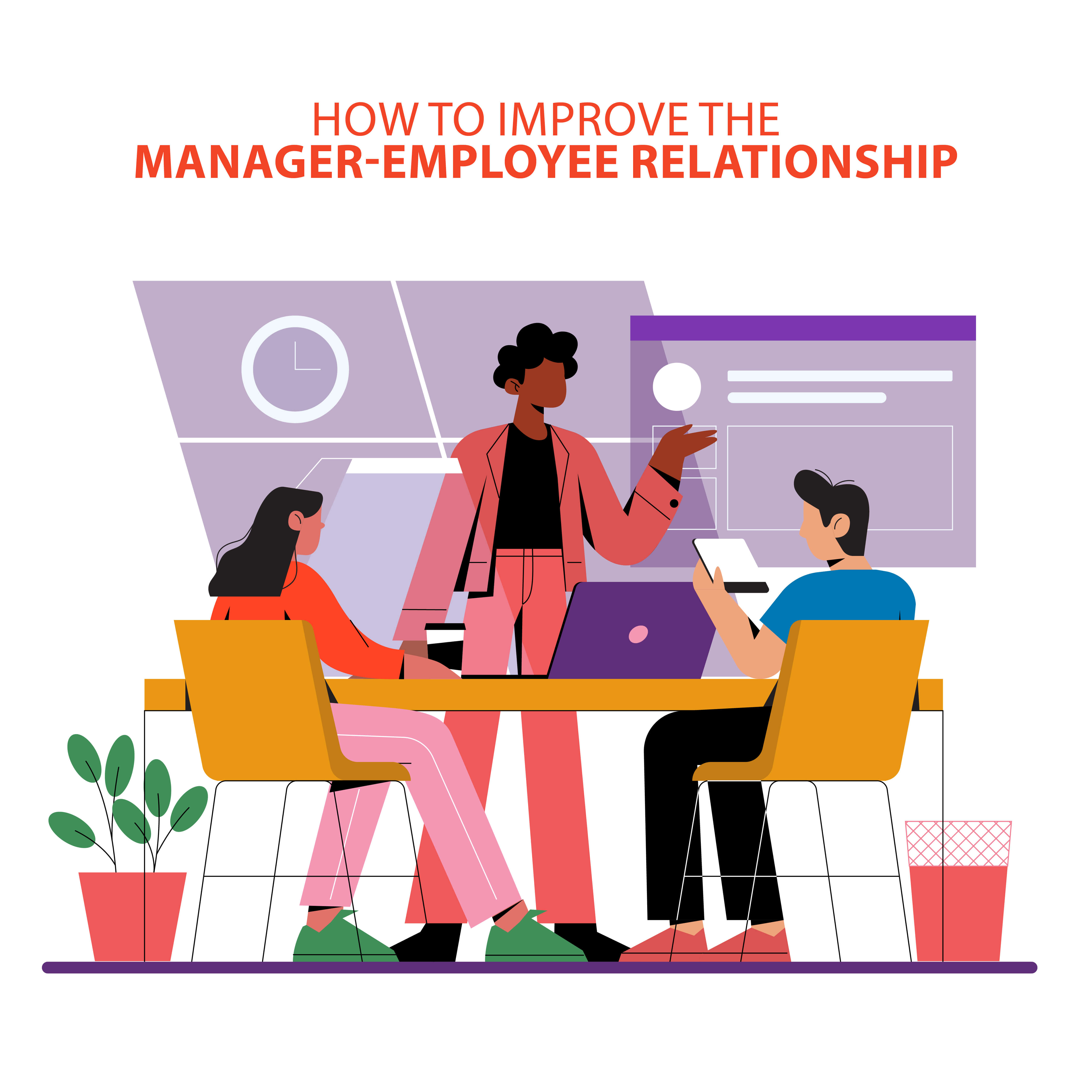
Connection at work is very important, but it can seem overwhelming. It is difficult for organizations to define, measure, and create – especially in today’s hybrid world of work. But employees crave it, and they go out to find it. The manager-employee relationship is a particularly important source of employee connection, but new research shows that most organizations struggle to help employees connect authentically with their managers. Fortunately, where there’s a gap, there’s an opportunity.
First: What do we mean by ’employee connection’?
“Employee connection” or “workplace connection” can seem really vague – and your People Managers don’t have time to try to solve a vague problem. That’s why we started our research and this conversation by creating a holistic definition of workplace connection that covers four distinct dimensions.
Employee Connection means:
- Employees feel connected to the company’s mission, values, and management vision.
- Employees feel connected to their colleagues and managers through authentic relationships.
- Employees feel connected to the work they do and understand its impact on the company’s goals.
- Employees feel that the work they do is connected to their personal values and aspirations.
It is this kind of expression that contributes to employees’ sense of belonging, psychological safety, and level of engagement. And with it, key business outcomes such as retention and productivity. This begs the question:
What are these best practices, supports and structures when it comes to strengthening the manager-employee relationship?
How can you help managers strengthen their relationships with their employees?
Only 38% of employees say that their company effectively enables them to build an authentic relationship with their manager. This finding should be particularly motivating for the leaders of an organization, as the manager-employee relationship is one of the most powerful dynamics in the workplace. However, many organizations struggle to put the right people in the right leadership positions and to prepare their managers for success, resulting in a stark divide between manager-employee relationships. And during the pandemic, this alienation has only intensified as more and more people start new jobs without ever meeting their manager in person.
1 Recognize that your managers are juggling many priorities.
Organizations ask a lot of our managers. We expect them to be empaths and problem solvers, leaders and mentors, communicators and mediators, all while juggling their day jobs. In short, they usually have too much to do – and that affects how well they can connect with employees.
2. Before trying to fix the manager, fix the employee communication system.
If your managers are struggling to connect with employees, zoom in and pay attention to the support system (or lack thereof) before you focus on them as individuals. Many organizations do not have sufficiently clear roles, responsibilities, and authority for managers, nor the support system, resources, and training to help managers grow as leaders. Managers of people are forced to wonder: Am I allowed to get a promotion and a pay rise? How am I expected to show up for my direct reports? When and how should I acknowledge employees?
If managers do not know how to answer these types of questions, it can lead to frustration, employee burnout, and, ultimately, a lack of connection with their employees. If you are not sure whether your managers are facing systemic problems, ask through structured conversations and surveys, find out what problems, managers are facing and where they feel blocked. Once you have identified common themes, you can provide more personalized support – either in the form of training, coaching, or resources.
3 Create common spaces for managers.
A great way to support your managers is to create a space where they can connect with other managers from different departments and teams. To get together with their colleagues. This gives them the opportunity to ask questions and discuss their problems with others who have similar experiences.
4. Promote the manager-employee bond through meaningful recognition.
Our research on bonding has shown that meaningful employee recognition is an incredibly effective tool you can use to strengthen employee bonding. Remember also the four dimensions of connection we mentioned earlier? If you want to help employees connect with their values and aspirations at a deeper level, then experiential rewards are the way to go. Experiences are people-centered, have a high ‘story value’, and help to shape a person’s identity – all of which contribute to greater employee satisfaction and a sense of connection.
Enabling managers to better connect with their employees may seem like just one of many goals, but a healthy manager-employee relationship is critical to the survival and success of a business. We hope this conversation is a good starting point that you can use to bridge the manager-employee gap.


